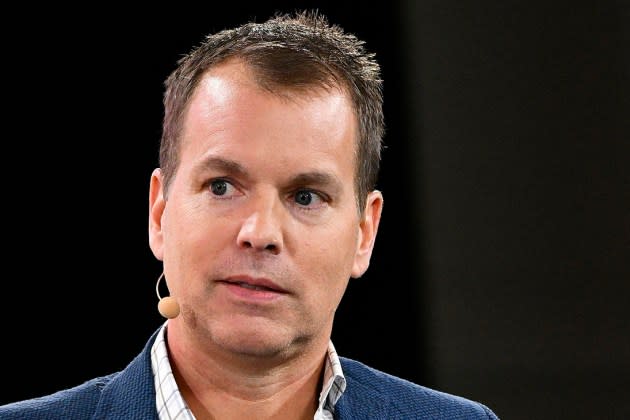HBO Doesn’t Dispute Using Fake Twitter Accounts to Undermine TV Critics

HBO has responded to allegations arising from a wrongful termination dispute with an ex-employee that accuse Casey Bloys, the network’s then-president of original programming, of commanding a “secret army” to push back against TV critics posting tepid reviews of HBO titles. In a statement, the company did not challenge claims that Bloys and another executive directed ex-HBO executive assistant Sully Temori to post from fake accounts, with the aim of undermining high-profile critics, as well as anonymous commenters on articles.
“HBO intends to vigorously defend against Mr. Temori’s allegations,” a spokesperson said. “We are not going to comment on select exchanges between programmers and errant tweets.”
More from The Hollywood Reporter
The story was first reported by Rolling Stone. It draws upon a trove of messages that will be filed in a lawsuit from Temori against HBO, Warner Media, Kathleen McCaffrey, HBO’s senior vice president of drama programming, and Francesca Orsi, HBO’s head of drama. He sued as a John Doe in Los Angeles Superior Court in July, alleging he was harassed over his disability and sexual orientation. The complaint — which includes claims for harassment, discrimination, retaliation and wrongful termination — also names The Weeknd (Abel Tesfaye) and two other executive producers on The Idol, who allegedly bullied Temori in an effort to push him out of his job.
The cover Twitter assignment isn’t mentioned in Temori’s complaint, but he has accused HBO executives of assigning him “menial tasks” unrelated to his position. A source familiar with the matter tells The Hollywood Reporter there are six tweets at issue.
According to a review of the messages by Rolling Stone, Temori was asked to create the fake accounts in June 2020 at the direction of McCaffrey. She allegedly told him that Bloys was “obsessed with Twitter” and “always wants to pick a fight” on the platform. “Is there a way to create a dummy account that can’t be traced to us to do his bidding,” wrote McCaffrey, who added that Bloys “always texts me asking me to find friends to reply.”
That month, Bloys directed McCaffrey to respond to a tweet from Vulture TV critic Kathryn VanArendonk about Matthew Rhys period drama Perry Mason. She wrote, “Dear prestige TV, please find some way to communicate male trauma besides showing me a flashback to the hero’s memories of trench warfare.”
“Maybe a Twitter user should tweet that that’s a pretty blithe response to what soldiers legitimately go through on [the] battlefield,” Bloys allegedly texted. “Do you have a secret handle? Couldn’t we say especially given that it’s D-Day to dismiss a soldier’s experience like that seems pretty disrespectful.”
Bloys, who reportedly said a “mole” at “arms length” from the executive team is necessary for the job, stressed, “We just need a random to make the point and make her feel bad.” The post written in response to VanArendonk comment stated, “A somewhat elitist take. Is there anything more traumatic for men (and now women) than fighting in a war. Sorry if that seems too convenient for you.”
In an interview with THR, VanArendonk stressed “anxiety” from executives “about the way people react in online discourse.”
“There’s a temptation to treat executives as though they are powerful and almost inhuman in the power and control they have, sort of like puppet masters,” she said, “but again and again we should not be surprised to discover they’re human.”
VanArendonk, who said she was not hurt by the tweets from Bloys, added, “I know that HBO executives and executives everywhere feel like it can be unfair when critics don’t respond well to their programming, but they understand it’s part of our job.”
Rolling Stone chief TV critic Alan Sepinwall was alleged to be another target of Bloys’ psy-op for his 2.5-star review of Joss Whedon sci-fi drama The Nevers.
“He’s mad at Alan Sepinwall,” McCaffrey, who was referring to Bloys, texted Temori. “Can our secret operative please tweet at Alan’s review: ‘Alan is always predictably safe and scared in his opinions.’
According to Rolling Stone, an account under the name of Kelly Shepherd, who called herself a “Texas mom and herbalist,” replied to Sepinwall’s review with the response from Bloys. The account has since been deleted.
When New York Times chief TV critic James Poniewozik tweeted that the series “feels like watching a show that someone has mysteriously deleted 25% of the scenes from,” Bloys directed McCaffrey to respond from the dummy account. “Maybe our friend needs to say what a shock it is that two middle aged white men (he and [Times TV critic Mike] Hale) are shitting on a show about women,” he wrote. McCaffrey responded, “I fucking hate these people, yes.”
After Sepinwall gave a 3-star review for Mare of Easttown, McCaffrey followed up with Temori, “His highness needs another one. We need our friend to call out Alan for Mare.” That day, the Shepherd account posted, “Alan missed on Succession and totally misses here because he is busy virtue signaling.”
The effort was not limited to reviews from critics. Bloys also keyed in on commenters on Deadline articles.
“Wasn’t a good show and harshly unveils Bloys-era cynicism of HBO development,” wrote the person, referring to HBO’s cancellation of rom-com thriller Run. “Try making a show that can actually inspire people–great TV doesn’t have to be ugly.”
Bloys was allegedly incensed. He wrote to McCaffrey, “How dare someone write that!! I want to say something along the lines of ‘lol ok they are just counting their Emmys’ or something like that!?” He also suggested, “Maybe we say we must have passed on their development and they are bitter?”
Court documents detailing the messages are expected to be filed in the lawsuit from Temori against HBO. In September, Warner Media was dismissed from the case. Bloys isn’t named in the complaint.
Lesley Goldberg contributed to this report.
Best of The Hollywood Reporter

 Yahoo News
Yahoo News 